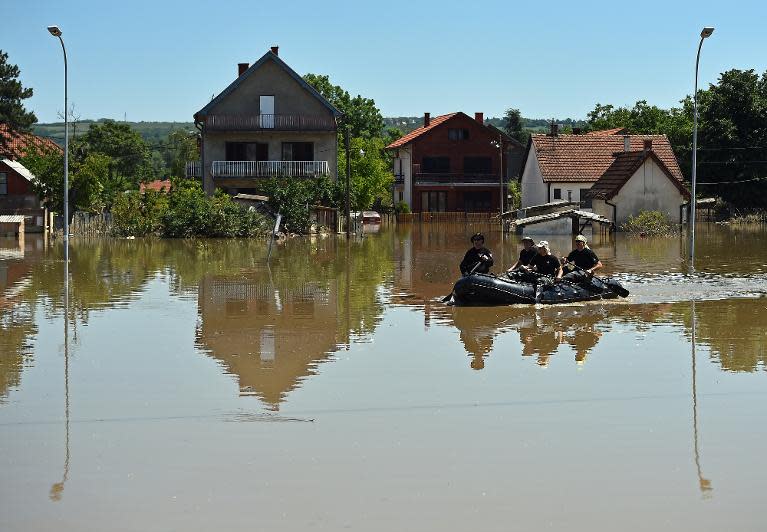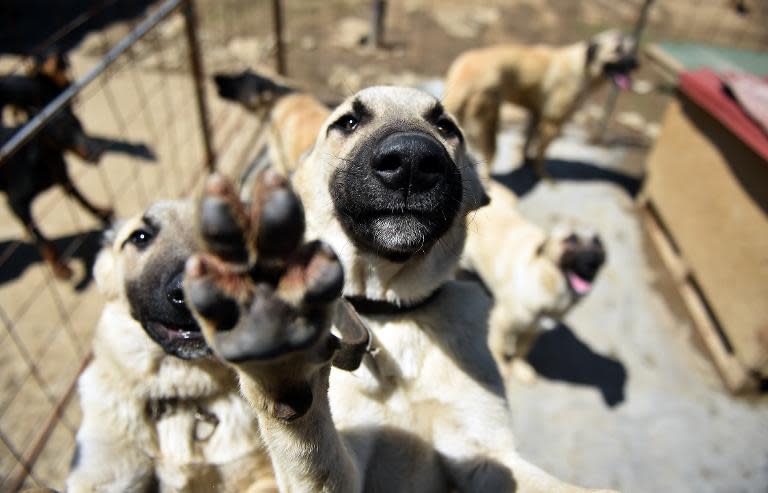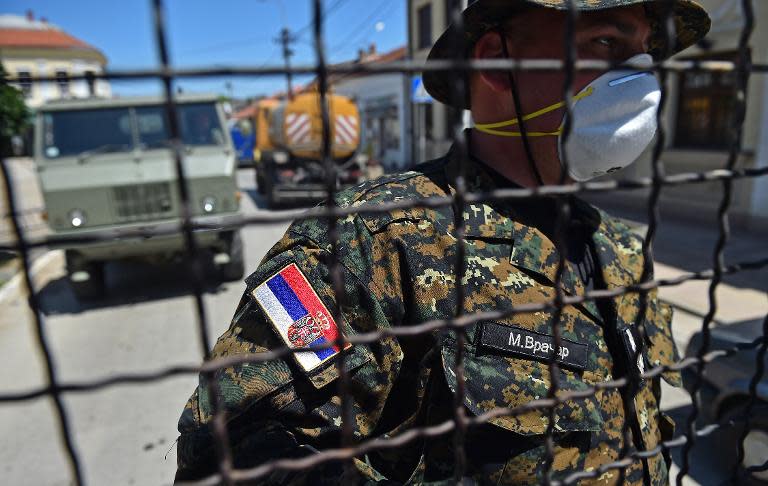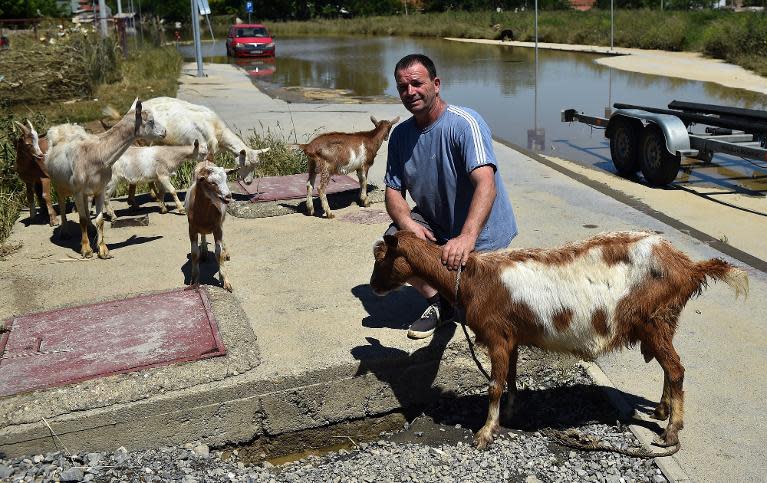Traumatised Balkan flood refugees just want to go home
Curled up on a mattress in a makeshift Belgrade shelter, Jovanka Mitric clutches a grainy black-and-white photo of her family house, now a ruin after the Balkans' worst floods in living memory. "This is the only thing I took with me when the soldiers came to save me from my house," the 78-year-old whispered, gazing at a photo of her husband and her in front of their modest village house. "It was our wedding day 55 years ago and we had just moved in. It has survived wars, poverty, two big floods, but now is gone for good," she said, wiping away a tear with her wrinkled hand. The deluge began last week when record amounts of rain lashed southeastern Europe, turning the Sava river and its tributaries in Bosnia, Serbia and Croatia into raging torrents that burst their banks. Almost 150,000 people were evacuated in the biggest exodus since the Yugoslav wars of the 1990s, including 30,000 in Serbia. Fifty-seven people perished. Many in Mitric's village Zabrezje, just a few kilometres (miles) away from Obrenovac, the hardest hit Serbian town, woke up on May 16 before dawn to the terrifying sound of roaring water. "We could not even open the door to let the chickens out of their coop, poor creatures," said Mitric's neighbour Mileva Rankovic, 65. It could be weeks before many of the evacuees will be allowed to return. First the debris must be cleared and their houses and farms declared disease-free. For some, there will be no home to return to. More than a half of Obrenovac's 25,000 inhabitants fled, and many still have no news of friends and relatives -- and pets in many cases -- and the state of their houses, or if they still existed. Those who had no one to accomodate them were temporarily settled in more than 40 make-shift shelters in Belgrade in sports halls, student dormitories and hotels. - 'You want to cry instead of them' - "More than 12,000 people have passed through the shelters in Belgrade and around 4,000 of them are still there," said Belgrade Mayor Sinisa Mali. Thousands of Red Cross workers, students and professionals are helping the evacuees, distributing food, hygienic necessities, clothes and medicine. In the sports hall visited by AFP, mattresses covered with light-blue sheets or sleeping bags were carefully aligned on a basketball court, while groups of neighbours exchanged the latest news. More than 50 psychologists and therapists have joined forces via social media to offer help to those in need. "They are still in a state of shock and we offer so called psychological first aid," child psychologist Katarina Stevanov told AFP. - Nightmares - The most important was to "tell them that it is normal to feel sad, depressed or shocked," she said. "You listen to their stories and you want to cry instead of them." "Nights are the worst. Three days have passed and I still hear the cries of howling dogs shrieking in the eery silence," said Verica Papic, 52, one of 400 in the Pionir sports hall. When the waters starting rising, she and two family members, together with 30 neighbours, moved from the lower floors of their building to the loft. One of the others rescued with her was 29-year old Vesna Pajic, now one of 300 young mothers put up in Belgrade hotels. Their menfolk have returned home to help clear the debris. "I am calm now, but I still dream of this horrible day me and my 20-month old daughter spent hidden in our attic awaiting rescuers," she told AFP. The hotel's management set aside a conference hall for children to play in, while volunteers gather groups of older ones in classrooms to do schoolwork and give a semblance of normality. "It is like we are on a field trip, but I want to go home," said one of them, nine-year old Jana.





